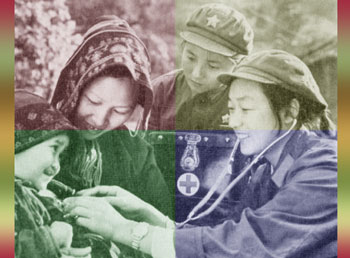
In 1971 CCAS learned exciting news. Through the CCAS Hong Kong branch and its contacts with China, the government of the People’s Republic of China had invited an Asian scholars’ delegation in Hong Kong, all CCAS members, to tour China the next summer for about four weeks. In April 1971 the American Ping-Pong team toured China, and in June the CCAS group arrived, the first American group in twenty-two years to travel to China. In February 1972 the Chinese government invited a second, broader delegation of CCAS scholars from the various chapters in the U.S. for a four-week tour of China. Each university chapter could send up to four people, who had to have passports by March 1. I was only working part-time, editing a newsletter on China for the American Friends Service Committee (AFSC). The AFSC was accommodating, my husband supportive. “If that’s what you want,” he said, “go for it.” When the Ann Arbor group chose me as one of its delegates, I was ecstatic. I was tired of sitting at home writing. I wanted to do something more active, and was even thinking of looking for a new career. Here was an opportunity to take a break and explore.
We met in Hong Kong for a long evening of discussion before crossing the bridge for China the next day. Many of the young scholars, with large egos and accustomed to the university classroom, made speeches. Others, like me, were quieter, urging discipline and consensus. “We are a collective,” the group finally voted. “We’ll try to make decisions by consensus, but all must abide by the majority vote. Everyone is obligated to return to the U.S., within a month after the trip, to write and speak publicly about his experiences. We’ll each choose a topic to focus on during our trip.” For no particular reason, I chose health care.
The next day we took the train from Kowloon to the Hong Kong border, crossed the border on foot, and boarded a new train for Canton. In Canton, Chinese officials dressed in green Mao jackets and displaying Mao buttons greeted us and outlined our itinerary. The group would split; half would take an eastern, coastal route, the other half an interior one. I was in the second half. As requested, we would tour central China’s Hunan Province, spending a few nights with farmers in a small village. Then we would spend several days in Peking visiting historical sites, before making a tour of the northeast manufacturing city of Shenyang. We’d be able to tour factories, universities, hospitals, clinics, and even a prison. We’d meet students and villagers.

